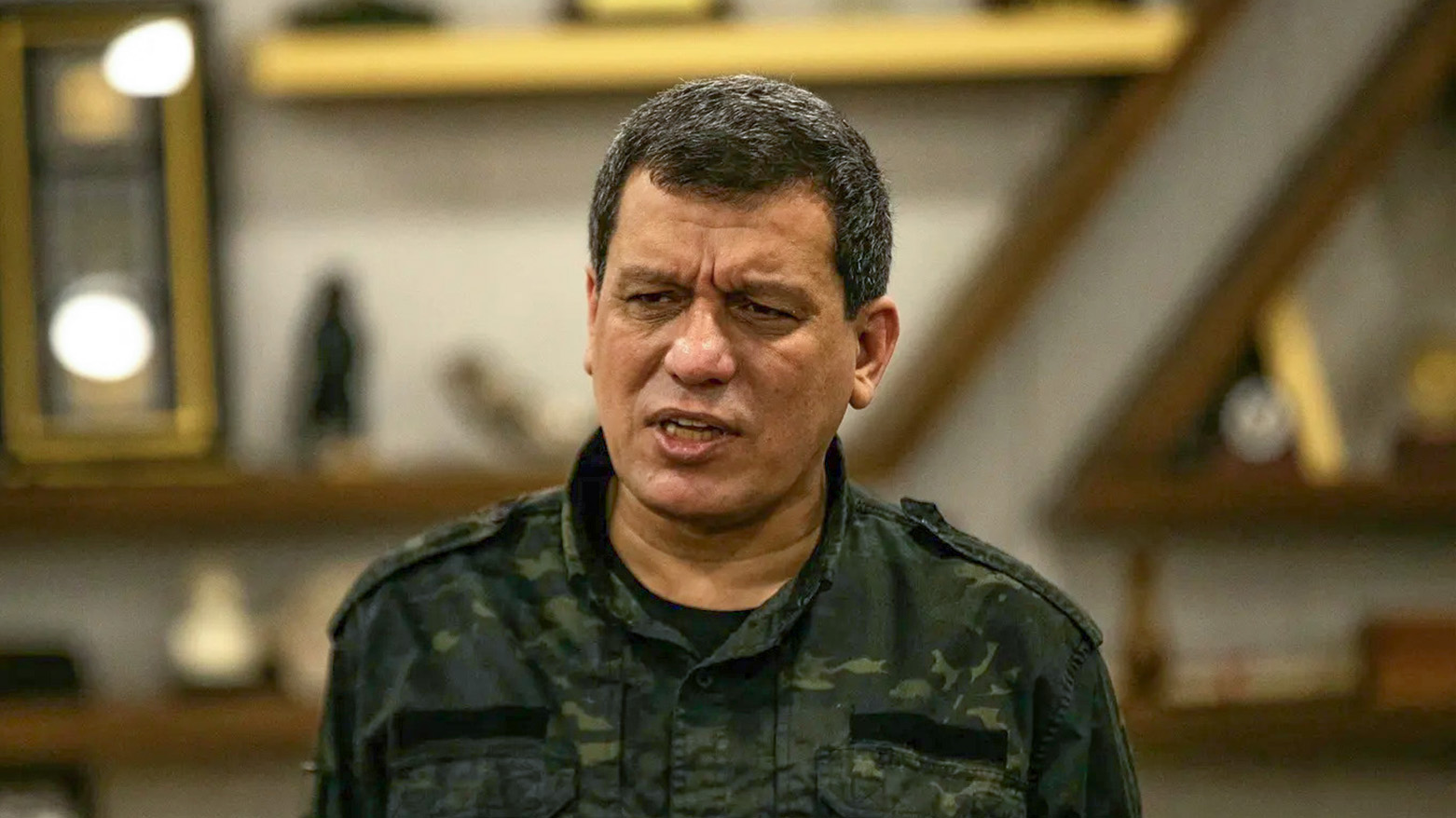'We Will Not Relive the Ba'ath Party’s Centralized Rule,' SDF Chief
“The key military-related points include the establishment of a unified national army, integrating institutions, and returning state institutions to our regions," he told Al Majalla.

ERBIL (Kurdistan24) – In a significant shift for Syria’s future, General Mazloum Abdi, commander-in-chief of the Syrian Democratic Forces (SDF), has officially recognized Ahmed al-Sharaa as Syria’s transitional president and expressed support for a unified Syrian military. In an exclusive interview with Al Majalla, Abdi detailed the key aspects of the agreement reached between the SDF and the new government, marking a turning point in Syria’s post-war transition.
Abdi, who had initially refrained from publicly congratulating al-Sharaa, cited the SDF’s absence from the inauguration ceremony as the reason for the delay. However, he has now affirmed the SDF’s commitment to engaging with the new administration to secure a stable future for northeastern Syria.
According to Al Majalla, Abdi extended an invitation to al-Sharaa to visit Kurdish-majority areas, emphasizing that the region remains an integral part of Syria.
During negotiations in Damascus on Dec. 29, Abdi and al-Sharaa agreed on several fundamental principles, including Syria’s territorial integrity, the formation of a unified army, a single institutional framework, and the recognition of the revolution’s flag as the state’s national flag. "The fundamental principle we agree on is that there should not be two separate armies, but rather a single, unified military force," Abdi told Al Majalla.
This agreement marks a substantial shift from previous tensions, as the SDF had resisted full military integration under the Syrian government.
The return of displaced Kurdish residents to Afrin was also a key topic of discussion. According to Al Majalla, Abdi confirmed that no fewer than 200,000 displaced individuals have returned to their homes, in line with assurances given by al-Sharaa’s government. While acknowledging that many details regarding military and administrative integration remain unresolved, Abdi expressed optimism that continued dialogue would yield concrete solutions.
One of the most contentious points remains the status of the Autonomous Administration in North and East Syria (AANES). The Syrian government has called for its dissolution, while the SDF has indicated willingness to discuss modifications to the existing administrative structures. "We do not insist on keeping the current system as it is, but these issues should be addressed during constitutional discussions in the transitional phase," Abdi explained. He underscored the necessity of preventing a return to the centralized Ba’athist model and advocated for some degree of local governance within the new Syria.
Economic matters also played a critical role in the discussions. Damascus has demanded full control over strategic resources, including northeastern Syria’s oil fields, with only a portion of revenues allocated to the region. Abdi stated that the SDF does not object in principle but stressed that historically marginalized areas must receive equitable resource distribution.
"Our key demand is that this region—previously neglected by the former regime—does not remain marginalized," he asserted.
On the subject of foreign fighters, Abdi clarified that those within the SDF will leave once a formal ceasefire is established. He also dismissed allegations of cooperation between the SDF and Iran, categorically denying any coordination with Tehran against the new government.
Abdi acknowledged concerns regarding external stakeholders, particularly Turkey, which he claimed remains opposed to the SDF’s integration into the Syrian state. Conversely, he confirmed that the United States has been actively mediating negotiations, encouraging the SDF to engage with the new government while ensuring that discussions remain constructive.
"Not only does the US encourage us to engage in dialogue with the Sharaa government, but it is also actively mediating and pushing both sides to sit down and negotiate," he told Al Majalla.
As Syria moves toward a National Dialogue Conference and constitutional reform, Abdi remains committed to ensuring that Kurdish rights are enshrined in the new framework. He stated that Damascus has not objected to the inclusion of Kurdish language and political representation but that specifics remain under discussion.
Additionally, he voiced concerns about the structure of the preparatory committee for the National Dialogue, arguing that its composition should reflect Syria’s diverse communities rather than be limited to pre-approved participants.
Looking ahead, Abdi expressed cautious optimism about the country’s trajectory, stating that while he prefers a shorter transitional period, he remains engaged in ensuring the SDF’s role in Syria’s future. He reiterated the organization’s commitment to national stability and security, noting that any future collaboration—including counterterrorism efforts—must be conducted within the framework of the new Syrian state.
The agreement between the SDF and the al-Sharaa government marks a crucial step toward ending Syria’s decade-long fragmentation. However, the success of this transition will depend on how effectively both parties navigate the challenges of military integration, political representation, and economic governance. With the support of international mediators and regional actors, the coming months will determine whether this agreement can pave the way for a truly unified Syria.